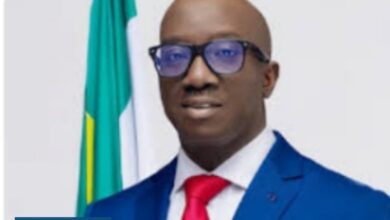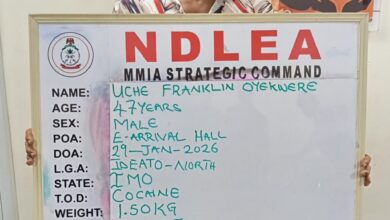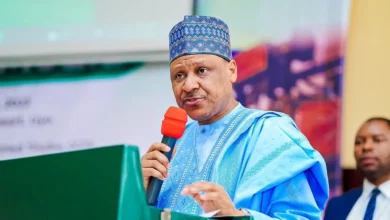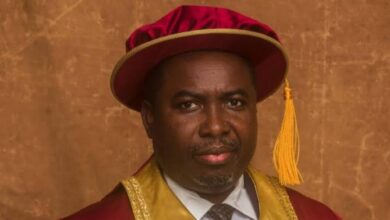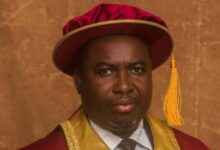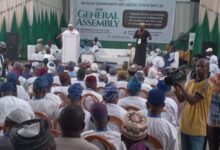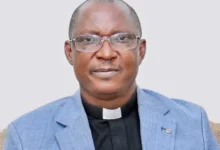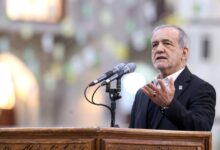Islam and Nigerian media 2
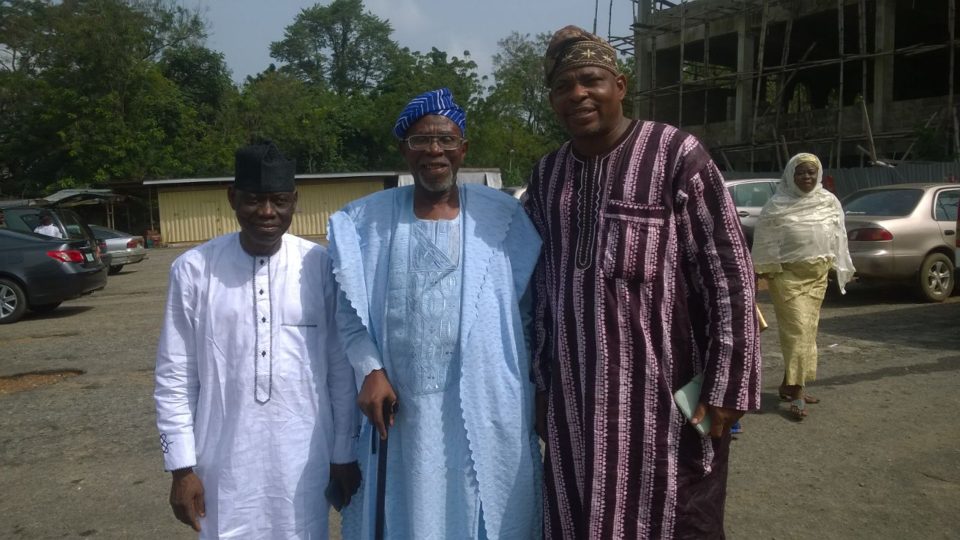
By FEMI ABBAS
Monologue
From all observable agles, the Nigerian media, as championed by the South West axis professional journalism, is the main arena to which the Muslims are regularly drawn into a spiritual war. And, Islam is the main target. If there is any religious tension in the country, at any time, the media is where to search for its cause. The bellicose news reports deliberately aimed at maligning Islam and denigrating Prophet Muhammad (SAW), directly or indirectly, can only be read on the pages of Nigeria newspapers or heard on Nigerian radio waves. The act is an obnoxious way of practising journalism.
Preamble
In response to a particular question coming incessantly to this column from every conceivable angle, yours sincerely decided to recall an article published in this column in 2007, which answers the recurring question. The enquirers wanted to know why Muslims and their activities are not as prominently reported in Nigerian media as those of their Christian counterparts.
Excerpt
An excerpt from the article with which I provided an answer to that question went as follows:
“Information is power. It can make or mar. An informer must be informed. He must know what information to disseminate. He must know, not only when and where to disseminate such information but also how to do it. These are the qualities that make journalists professionals in their calling.
Journalism as a profession is not about news gathering and news reporting alone. It is also about the methodology of disseminating information and transmitting education as well as dishing out entertainment to the public. That is why a journalist is universally considered to be a professional who knows or should know something about virtually everything. To be a thorough professional, therefore, a journalist must be an all rounder in various fields of discipline. He cannot report the space exploration without some scientific knowledge of astronomy. He cannot report war without some knowledge of weaponry and the geography of the war areas as well as the socio-cultural history of the warring groups or nations involved. Besides, no trained journalist can report a religious activity without knowing some jargons of the religion in question.
And, of course, in the process of filing his reports, a professional journalist must be conscious of the technical sequence to be followed. This is generally known in the profession as ‘five W’s and H’. The coded cliché here is interpreted as follows: “Who (does) What? Where? When? Why? and How?” Without practical knowledge of that sequence, a journalist cannot be qualified to called a professional.
The Norm of Journalism
From whatever angle journalism is viewed, therefore, knowledge remains the main axis around which its practitioner’s activities must rotate. No ignorant person can be genuinely accommodated in that noble profession.
Prophet Muhammad (SAW) had foreseen this before he recommended knowledge seeking to his companions. He said: “Seek knowledge even if you will have to travel to China”. That was at a time when China was known to be the farthest place from Arabia.
Essence of Knowledge
Nothing in the life of man is comparable to knowledge. As a matter of fact, life is worthwhile only if it is based on knowledge.
That was why the first revelation in the Qur’an started on the premise of knowledge. The very first chapter of that Sacred Book commenced thus: “Read in the name of your Lord who created; He created man from clots of congealed blood. Read! Your Lord is the Most Bountiful One, who taught by the pen, (He) taught man what he (man) did not know…”. And, to further emphasize this, the Prophet said that “knowledge is missing, Muslims should search for it wherever they can find it”. He did not restrict such knowledge to religion. Without knowledge, there can be no right information.
The beginning of Journalism
Contrary to the falsehood documented and disseminated by the Western world that journalism started in Germany in the 15th century, it was the Muslims who actually started journalism in Arabia over 1400 years ago. Though they did not call it journalism, it was they who started what we now call journalism through the process that the early Muslims followed in documenting Hadith (the tradition and rightly guided statements of Prophet Muhammad).
In order to prevent false documentation of any fabricated statements in the name of the Prophet, some Muslim researchers took up the task of ascertaining what the Prophet actually said or did as against what some prominence-seekers were trying to attribute to him. It was a thorough investigative job voluntarily done by certain individuals to retain the authenticity of Islam through Hadith. Foremost among such great researchers were Abu Ibn Abbas, Ibn Mas’ud, Malik Bn Anas, Al-Bukhari, Muslim, Abu Daud, At-Tirmidhi, An-Nisai, Ibn Majah and a host of others.
For the purpose of authenticity, these great scholars introduced what they called the ‘Chain of Narrations’ (Isnad). Through that Chain, they were able to trace the source of every reported Hadith to the Prophet who was quoted to have expressed it. Such narrations were graded as: Sahih (indisputably genuine); Hasan (perfectly authentic); Hasanun Sahih (genuine and authentic); Munqat’ (broken); Garib (strange) and so forth.
Thus, from its final documentation through this process, Hadith was transmitted from generation to generation just as we transmit news stories today in journalism profession. Without the great effort of those researchers, the world would have been flooded today with all sorts of fabricated expressions credited to the Prophet. And such fabrications would have thrown the Muslim Ummah into total confusion even as Islam itself would have been shrouded in doubt.
The very first Minister appointed by Prophet Muhammad (SAW) was that of information.
The black man from Abyssinia, called Bilal, who was charged with informing Muslims of the time of Salat by making ‘Adhan’, was Minister of Information. That shows how important information is in Islam.
However, when journalism, as we know it today, was introduced to Nigeria at Abeokuta, in 1859, it was through the Christian perception and mentality of the colonial masters. Although the early Nigerian journalists were quick to realize the power of the Press which they used to fight for Nigerian independence, they nevertheless, inherited some colonial traditions which are still causing disharmony in our society today. One of such traditions is religious perception. For instance, an average Nigerian journalist does not see anything positive in Islam as a religion because he/she is blatantly ignorant of its tenets. This is not to say that journalists cannot understand Islam if given the opportunity, but the colonial tradition they inherited is such that they must not see anything good in any religion other than Christianity, which is the religion of the colonialists. And, for this reason, they had to follow the colonial Orientation in reporting Islam and the Muslims according to the latter’s perception until very recently when that perception began to change in the West for various reasons.
Abuse of privilege
Even for well over a century after the introduction of journalism to Nigeria, the word ISLAM and MUSLIMS were reported in Nigerian media, like in European media, as Mohammedanism and Mohammedans respectively. It took the few Muslims in Europe at that time to counter that obnoxious but deliberate imposition before it was changed. Even as of today, and against the ethics of their profession, most Nigerian journalists take pleasure in writing or pronouncing ‘MOSLEM’ rather than ‘MUSLIM’ knowing fully well that the earlier is derogatory and abhorrent to Muslims.
In news reporting and even editorials of many newspapers, some journalists have ridiculously embarrassed themselves, their employers as well as their Muslim readers by confusing Eidul Adha with Eidul Fitr during Muslim festivals out of deliberate refusal to want to know anything about Islam. No Muslim journalist will ever confuse Christmas with Easter.
Another instance is the seeming malicious manner in which some journalists do report the outbreak of events and occurrences in the country particularly at very sensitive times thereby compounding any religious problem at hand. It has virtually become a tradition in Nigerian media to describe youths who engage in any disturbing activities in the north as ‘fanatics’ or ‘fundamentalists’ or ‘zealots’ even before the details of whatever happened become known. And, in other parts of the country, such restive youths are merely reported as miscreants or militants or bandits. The implication here is that any disturbance in the Muslim dominated area in the country must automatically be clad in the garb of Islamic religion which is perceived as the breeder of fanaticism.
These and other religiously insensitive reporting can be potentially dangerous for the corporate existence of this volatile country. We had witnessed many crises that were precipitated by such insensitivity in the remote and recent past. But the big question is: why are Nigerian Muslims apathetic to media employment?
Muslims in the Media
Muslims in the media must have good knowledge of Christianity and the culture of its adherents just as Christian journalist must know the dos and don’ts of Islam and the Muslims. Arabic is not a language meant for the Muslims alone. There are Christian Arabs who speak no language other than Arabic. And, there is no record anywhere to show that Prophet Isa (Jesus) ever spoke English which is the primary language of the Bible in Nigeria today. Both Islam and Christianity came to meet us here in Nigeria. Why must we use them to destroy ourselves on the pages of newspapers or on the radio or television?
One of the responsibilities of the media is to ventilate a peaceful atmosphere for harmonious co-existence of the people. Thus as supposedly educated and civilized professionals, Nigerian journalists must not shirk such a fundamental responsibility at this age of the internet.
Admonition
For the sake of our collective survival, no combative or provocative journalism should be extended to religious sphere. We all need to live in harmony before we can expect any individual to be patriotic to to our country. God save Nigeria!
*First published in The Nation on February 5, 2021.


